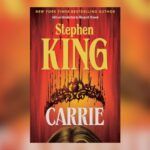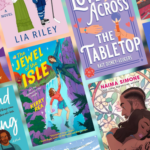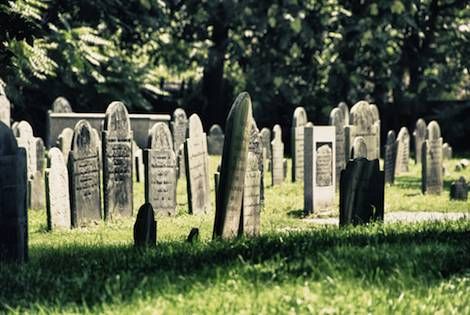
16 Books on the Salem Witch Trials to Kick Off Your Spooky Fall
This content contains affiliate links. When you buy through these links, we may earn an affiliate commission.
I visited Salem for the first time a few weeks ago, and I still haven’t processed the experience. I have been obsessed with going to Salem for what feels like my whole life. I’m very interested in the history of Puritans and the trials, but equally fascinated by the town’s current obsession with witchcraft, which manifests in everything from cool witch shops to hokey tourist traps. But because fall is coming (though it doesn’t feel like it yet), I thought I would put together a list of must read books on Salem (or Salem adjacent, really). This is by no means exhaustive (not sure if that is even possible), so please comment with your own suggestions!
Fiction
- The Crucible. I figured I would get this classic out of the way. Though I think Miller’s representation of the Witch Trials is overly relied on (it is an allegory for the McCarthy Trials! They aren’t the same thing!) it’s an important and good read.
 How to Hang a Witch by Adriana Mather. On the other side of the spectrum is How to Hang a Witch, Mather’s modern day tale of a high school student descended from Cotton Mather. I don’t want to give anymore away, but it’s AMAZING and the sequel is coming soon.
How to Hang a Witch by Adriana Mather. On the other side of the spectrum is How to Hang a Witch, Mather’s modern day tale of a high school student descended from Cotton Mather. I don’t want to give anymore away, but it’s AMAZING and the sequel is coming soon.
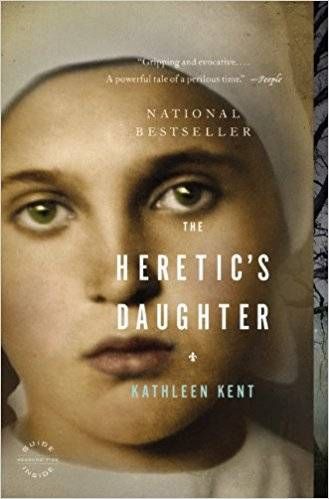 The Heretic’s Daughter by Kathleen Kent. In the Heretic’s Daughter, Kent tells the story of Sarah Carrier, the daughter of a woman accused of witchcraft. This novel is hard to put down, and a bit darker than some of the above mentioned books.
The Heretic’s Daughter by Kathleen Kent. In the Heretic’s Daughter, Kent tells the story of Sarah Carrier, the daughter of a woman accused of witchcraft. This novel is hard to put down, and a bit darker than some of the above mentioned books.
Nonfiction
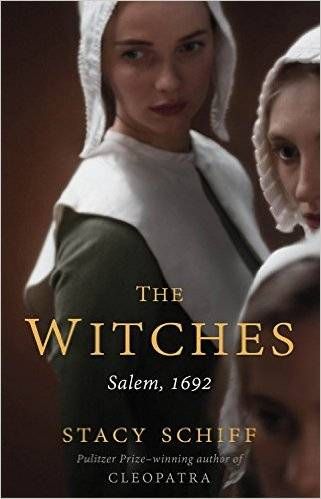 The Witches: Suspicion, Betrayal and Hysteria in 1692 Salem by Stacy Schiff. While not as academically rigorous as some non-fiction on the trials, Schiff’s book is an engaging account of the events and a great starting place for those with little familiarity with the history of Salem.
The Witches: Suspicion, Betrayal and Hysteria in 1692 Salem by Stacy Schiff. While not as academically rigorous as some non-fiction on the trials, Schiff’s book is an engaging account of the events and a great starting place for those with little familiarity with the history of Salem.
- A Storm of Witchcraft: The Salem Witch Trials and the American Experience by Emerson Baker. In A Storm of Witchcraft, historian Emerson Baker argues that the perfect “storm” of events enable the Salem Witch Trials, and places the trials in the context of the broader Atlantic world.
- The Salem Witch Trials Reader. This reader features primary source documents from the time of the trials and is a great resource.
- The Witchcraft of Salem Village by Shirley Jackson. Definitely written for children, The Witchcraft of Salem Village is a brief accounting of the trials, worth picking up if you are a fan of Jackson.
- The Specter of Salem: Remembering the Salem Witch Trials in Nineteenth Century America by Gretchen Adams. In The Specter of Salem, Adams focuses on the ways in which the Salem Witch Trails were enshrined in the collective memory of Americans. A fascinating read, especially taken in the context of the continued tourism and fascination with Salem.
 The Salem Witch Trials: A Day by Day Chronicle of a Community under Siege by Marilynne Roach. I’ve never read a book quite like this, as it’s really a very detailed timeline of the Salem Witch Trials. If you want a very concrete idea of the events, than you can do no better then this very thorough read.
The Salem Witch Trials: A Day by Day Chronicle of a Community under Siege by Marilynne Roach. I’ve never read a book quite like this, as it’s really a very detailed timeline of the Salem Witch Trials. If you want a very concrete idea of the events, than you can do no better then this very thorough read.
- The Oxford Encyclopedia of Witchcraft and Magic edited by Owen Davies. This edited collection focuses on much more than Salem, but gives greater context to the witch trials in America and their memory in America.
- Salem Possessed: The Social Origins of Witchcraft by Paul Boyer and Stephen Nissenbaum. In Salem Possessed, historians Boyer and Nissenbaum explore the social history of Salem and the lives of those that made the witch trials possible.



